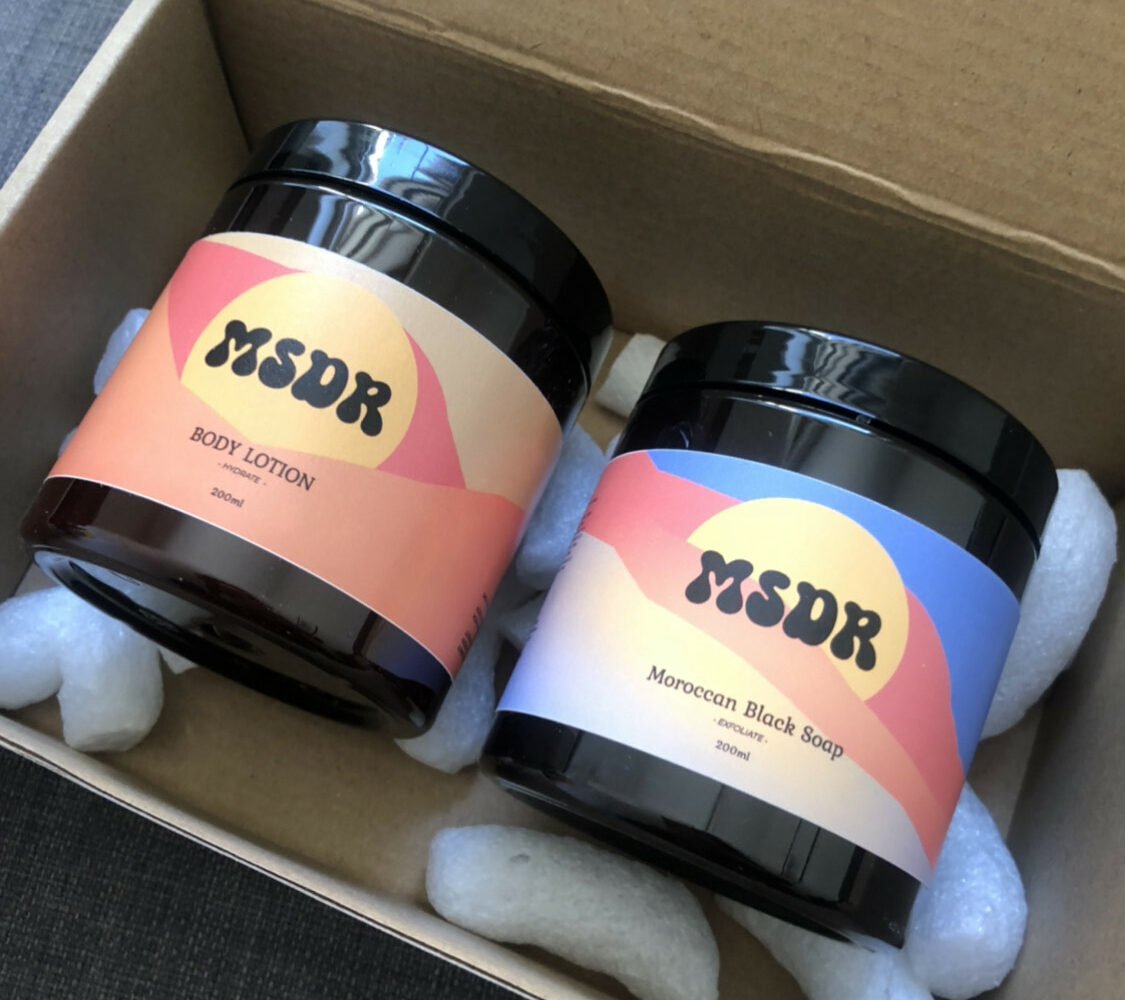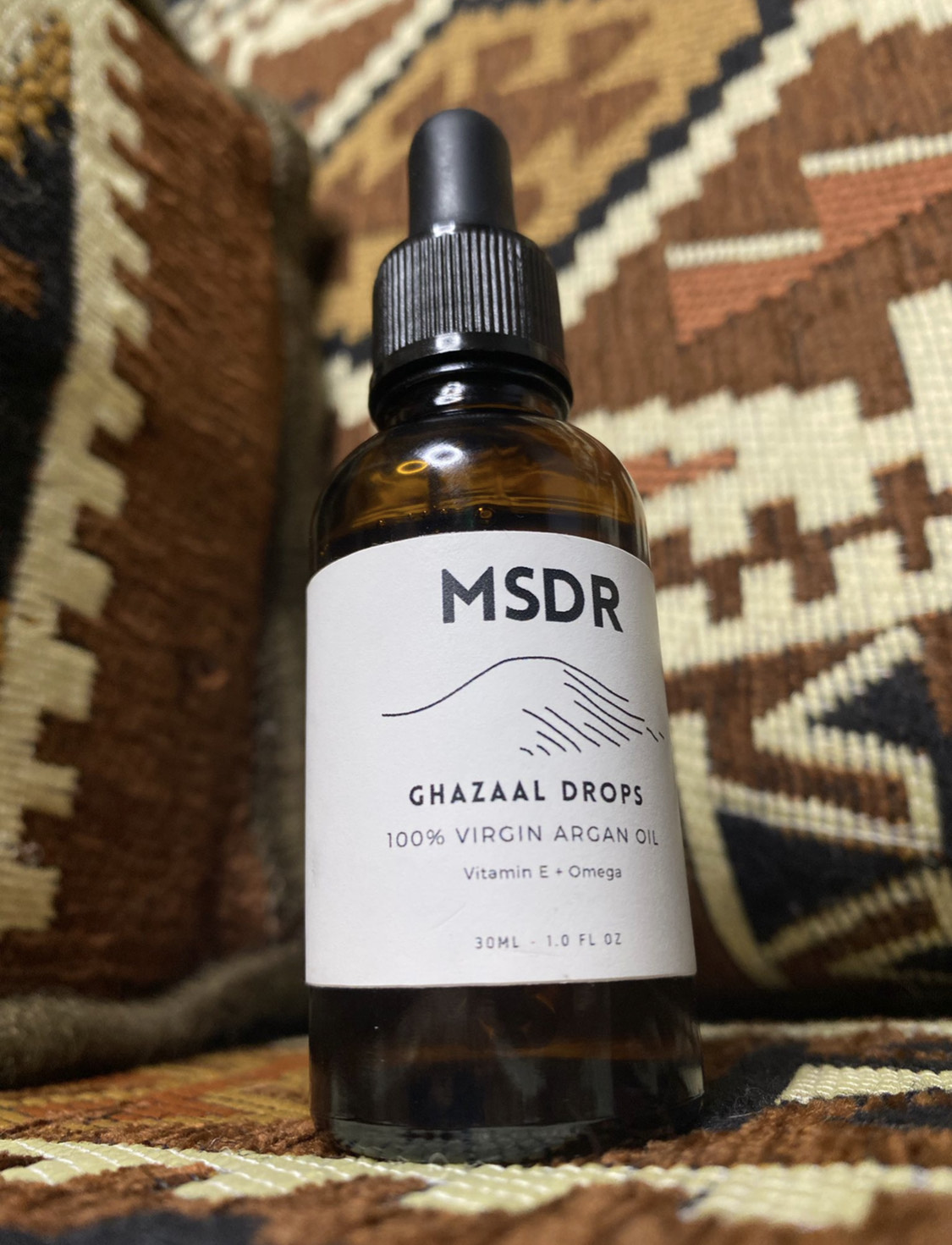
How MSDR Is Building A Community On TikTok Around Moroccan Beauty Rituals And Surf Culture
Ines Fakiri always knew that if she ever started a company it would involve her culture in some capacity. “Whatever I would do or whatever I would create it would have to be Moroccan because I’m from there, I grew up there, and I just felt like our heritage, when it comes to beauty and self care, was so amazing that it needed to be shared with the world,” she says.
Fakiri moved to London at 18 years old to study and, at the time, struggled to find the traditional products and ingredients she relied on back home. Her entrepreneurial fire was lit, but diminished slightly when the pandemic hit, and she moved back to Morocco. She hunkered down for six months as her idea percolated. Simultaneously, she was growing out a keratin hair treatment aided by the benefits of argan oil. “That was my sign that there is something to be done with these Moroccan ingredients,” she says.
Fariki launched MSDR, which pronounced masdar, a word that means “source” in Arabic, in April 2021 with a single argan oil product housed in neutral Aesop-leaning packaging. “It was very Arabic, which is what I thought could work,” recalls Fakiri. The brand wasn’t an immediate hit and generated about 30 unit sales a month. “It definitely wasn’t as crazy as I was expecting, admits Fakiri.

She concluded the design was a part of the problem and, in February this year, MSDR relaunched with colorful blue, red and orange packaging inspired by Fakiri’s Moroccan roots and her love of surfing. “Surf culture is really big in Morocco,” she says. “We have a lot of beaches, and I love to surf personally, so we did something that looks at the landscape of Morocco: the Sahara Desert, the beach, a bit of forest and combine it with my passion for surfing.”
In tandem with the rebrand, new products joined the lineup. Today, MSDR’s collection includes its bestselling hammam Kessa glove Zine ($8) and organic black soap Zeytoun ($21), argan oil Ghazaal Drops ($22), body lotion Shems ($20) and hairbrush Mechta ($7). The day of the relaunch, MSDR sold 350 products. In less than two weeks, it generated $4,000 in sales.
Fakiri upped MSDR’s social media marketing as a way to boost sales. A gen Z-er, she often turned to TikTok to share recommendations, create self-care content and air her frustrations. So, it was a no-brainer that she’d tap the platform to promote MSDR.

In the beginning, Fakiri’s TikTok videos were garnering 100 or 200 views. Her initial video that took off stemmed from her annoyance that other companies were misappropriating Moroccan products. The 15-second video racked up over 115,000 views. Fakiri says, “As a Moroccan, I’m very saddened and also angry to see these brands that are literally ripping off our Kessa gloves, selling them as Hammam gloves without including the rituals that we know,and selling them for like $50, $60 when the gloves literally cost one pound in Morocco.”
MSDR’s most popular videos fall into three categories. The first is relatable experience-based content on topics such as growing up in a Moroccan household. “This helps foster the sense of community, and people really feel like they can see themselves through me,” says Fakiri. “That helps them support me because they’ve put a face to the brand.”
The second features videos explaining hammam. “A lot of people that follow me are Moroccan, but they’ve never grew up in Morocco, so they’ve never had the process explained to them and they have this sense of not knowing their roots,” says Fakiri. The third category is stories about MSDR’s background.

As a result of the niche community Fakiri has cultivated on TikTok, MSDR’s core customers are mostly Indian and Pakistani women interested in body care rituals or Moroccan and Arab consumers living abroad in countries like the United Kingdom, Netherlands, France, Germany and Norway. They’re engaged and reactive, says Fakiri. She elaborates, “People tell me about products that they want to see on the shop, they give me all of their order numbers so that I can package them on TikTok, they give me ideas all of the time.”
She hopes to retain that intimacy as MSDR grows by sticking to primarily direct-to-consumer distribution, although partnerships with small boutique hotels or pop-up stores are in her plans. Fakiri says, “I don’t want to be in big stores, at least in the beginning, because I still want to keep that sense of niche and being close to my customer.”
Additional MSDR products are slated to launch soon connecting to the surf theme. They include a tanning oil scheduled for release later this month along with a T-shirt, bikini and tote bag. Fakiri says, “As we grow as a brand, I really want it to be more than just products, I want it to be embedded in our beach culture in Morocco and eventually become more of a lifestyle brand than just a self-care brand.”





Leave a Reply
You must be logged in to post a comment.